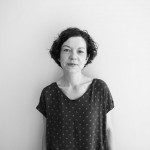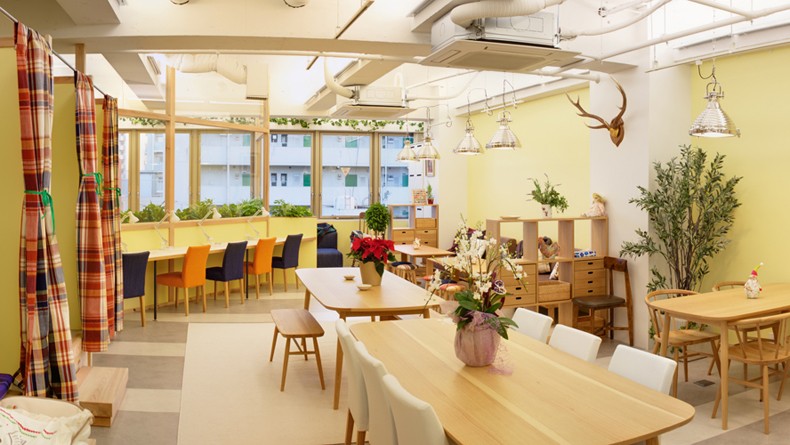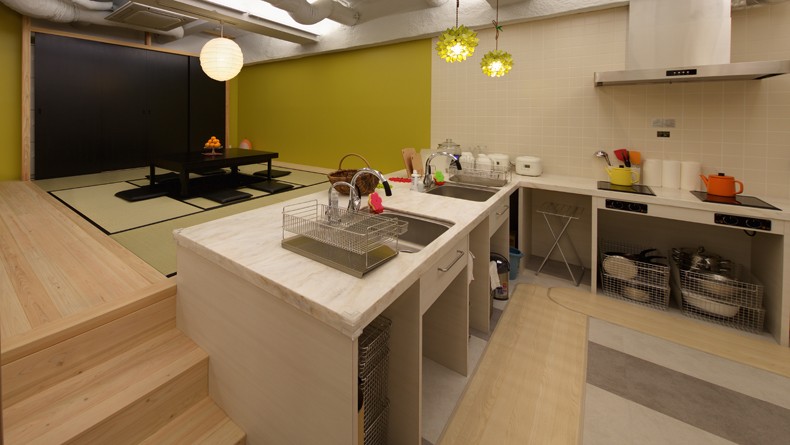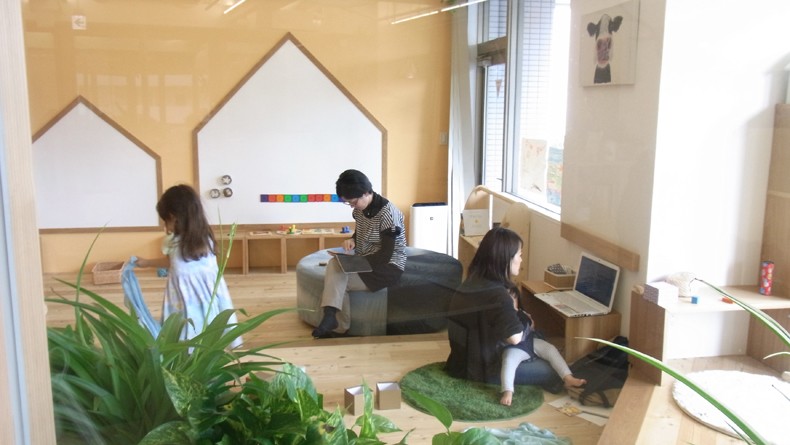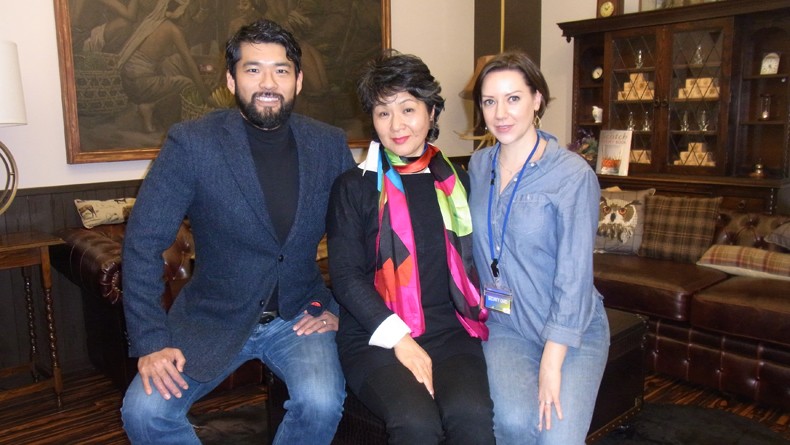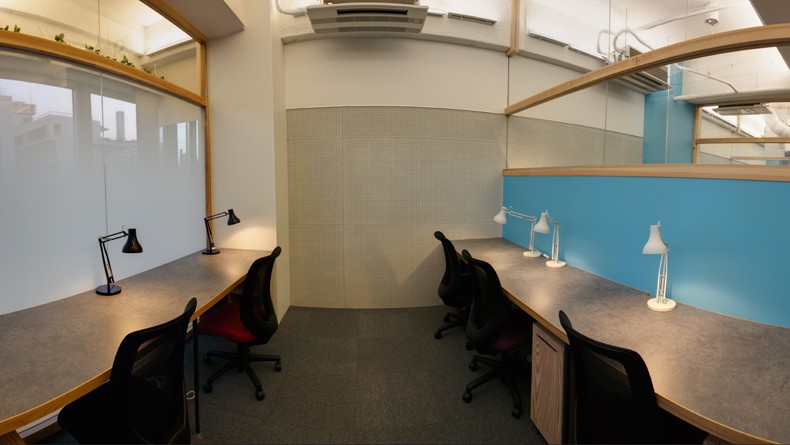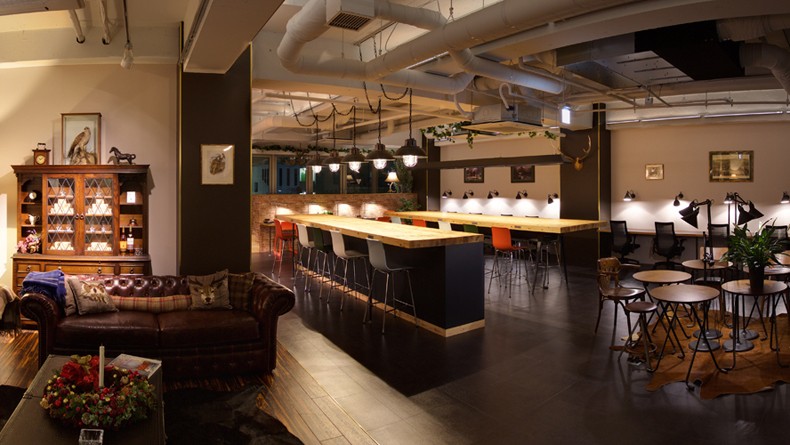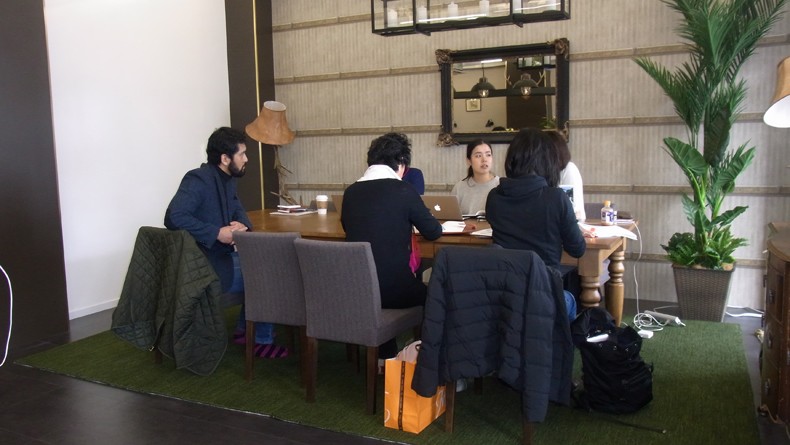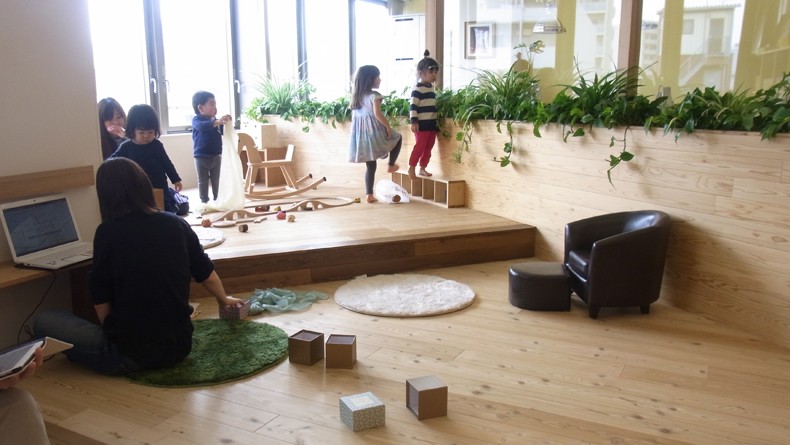Ryozan Park Otsuka’s Innovative Workspace for Parents
Ryozan Park Otsuka, a new office space in Tokyo, is offering parents a fresh alternative to traditional childcare options with a combined work and play space that allows parents to be with their children daily, without compromising their careers. With the help of its users, the project aims to create an ideal child-friendly work space, or as its creators refer to it, a community.
Situated near the lesser-known Yamanote line stop of Otsuka (one stop from Ikebukuro), Ryozan Park consists of three floors of office space, with each floor geared toward a different style of use. The top floor, titled Family, is the heart of the project. Along with the necessary business amenities and equipment that are available on each of the other floors, the Family section also includes a play area with toys, a kitchen and large tatami dining room, cozy capsules for children’s naps and nursing, and custom-made family-style toilets. With its pale wooden flooring and furniture and glass partitions only where necessary, Family is open and spacious, relaxing, but also invigorating.
The play room is staffed by bilingual childcare professionals during the core hours of 10 a.m. to noon and 1 to 4 p.m. on weekdays. The staff help watch the children and sometimes engage them in guided group activities. As it is not a childcare facility, parents are responsible for their children at all times, but are encouraged to share supervision of the kids. Ryozan Park refers to the group of parents and childcare professionals based at its family floor as a “kosodate village,” or child-rearing village. It is a concept based on the adage, “It takes a village to raise a child.”
Co-owner of Ryozan Park, Rachel Ferguson, provides an example. “Although you can’t just leave your child here and go off for lunch or something, you can ask one of the other parents to watch your child for you while you go to the post office. And we hope users do do that kind of sharing the responsibility.”
Not yet a parent herself, but married to Ryozan Park’s co-creator Noritaka Takezawa, Rachel says the goal of the Family space is to create an ideal child-rearing and co-working environment. But she also acknowledges that they can only do so much. The Kosodate Village is a totally new concept, she says. “It’s a work in progress being created by an evolving community.” How Family will evolve will be determined mainly by its members and their needs, Rachel says. She hopes members will support each other in whatever way they each require, and therein create a kind of extended family.
Community is important to Rachel and Noritaka. Ryozan Park is in Otsuka partly because it is near their home in neighboring Sugamo. They have a number of family members among the staff and many of the current Family users are their friends. The Otsuka building itself is owned by Noritaka’s parents’ real estate company. Changes in the family and its love of discussion and of sharing ideas led to the creation of Ryozan Park, and it is those aspects that define its character.
The story goes like this. Back when Rachel and Noritaka were dating, she was working on a master’s degree in sociology about gender equality in Japan and specifically about the career success of bicultural women. Their dinner conversation would often center around such issues. The birth of the couple’s nephew shifted the whole family’s experience of child-raising to a new level. When Noritaka’s sister would bring her son to Japan to visit from where they live in Turkey (her husband’s homeland) the family office became a child-inhabited one. The boy would be crawling up onto their laps while they were working on their computers, and sometimes he would even fall asleep on the office floor. When the tenant at the Otsuka building decided to move out, Noritaka’s father encouraged Rachel and his son to give their idea a go. The project opened in December 2014.
In business terms, Ryozan Park Family is an experiment, Rachel says. It’s not been done before. To protect the whole project’s bottom-line, on one of their floors they’ve stuck to a more traditional business model of individual, lockable room offices that are rented out under two-year contracts. The floor, called Focus, includes a discussion space and a small gym area. A light-blue theme in the décor here gives Focus a fresh, clean feel.
The middle floor, called Core, is an open-plan area with lots of desk space, some study booths, a lounge, a meeting table and a sunny reading area decked out with bean bags. So much comfortable shared space seems sure to help nurture cross-fertilization of ideas among members. Core users are contracted on a monthly basis.
The décor at Core is heavily inspired by Rachel’s homeland, Scotland. There are staghorn ornaments, Scottish paintings on the walls and Rachel’s grandfather’s aged tomes of Scottish etymology. In the lounge cabinet are sake cups from Rachel and Noritaka’s wedding. They have his family crest on one side and hers on the other. It’s a small but significant sign of how they acknowledge and respect others’ backgrounds.
Back on the Family floor, a girl is holding a silky scarf up into the air as she runs around the play room and a boy is at the window watching an Arakawa line street car pass by below. Rachel and Noritaka had the floor boards here gradually raised so that the top level is just right for kids to watch the trams. There’s not much plastic here. Even most of the toys are made of wood. A lot of care has gone into making Family. And with qualified childcare specialists in attendance daily, that care will be ongoing.
Rachel says that for herself, when she contemplates motherhood, she feels equally uncomfortable with the idea of either quitting work altogether or handing her child over to full-time care. Surely children feel a similar dichotomy. They like to be with their parents, but don’t like it when they are made to feel that they are inconveniencing them. Experts say they also need a certain amount of freedom and the social skills that come from regular interaction with non-family members. At Family, parents are always within the child’s reach, but also out of their hair. To allow kids their own space surely respects their needs, just as the same is true for parents. Ryozan Park’s model of supportive co-existence may well be a step toward the ideal structure of work-life balance that millions of families and societies throughout the world are seeking.
The Family floor is open from 9 a.m. to 5 p.m. A trial visit costs ¥2,000. A book of eight visit tickets costs ¥25,000 and is valid for three months. Membership for a parent and child together is ¥50,000 a month and can be transferred between parents in the same family. There is a ¥10,000 registration fee.
Rates for usage of the other floors can be found on the official website.
The Deets
Address: 5F–7F Minami Otsuka T&T Building, 3-36-7 Minami-Otsuka, Toshima-ku, Tokyo
Tel: 03-6912-0304
